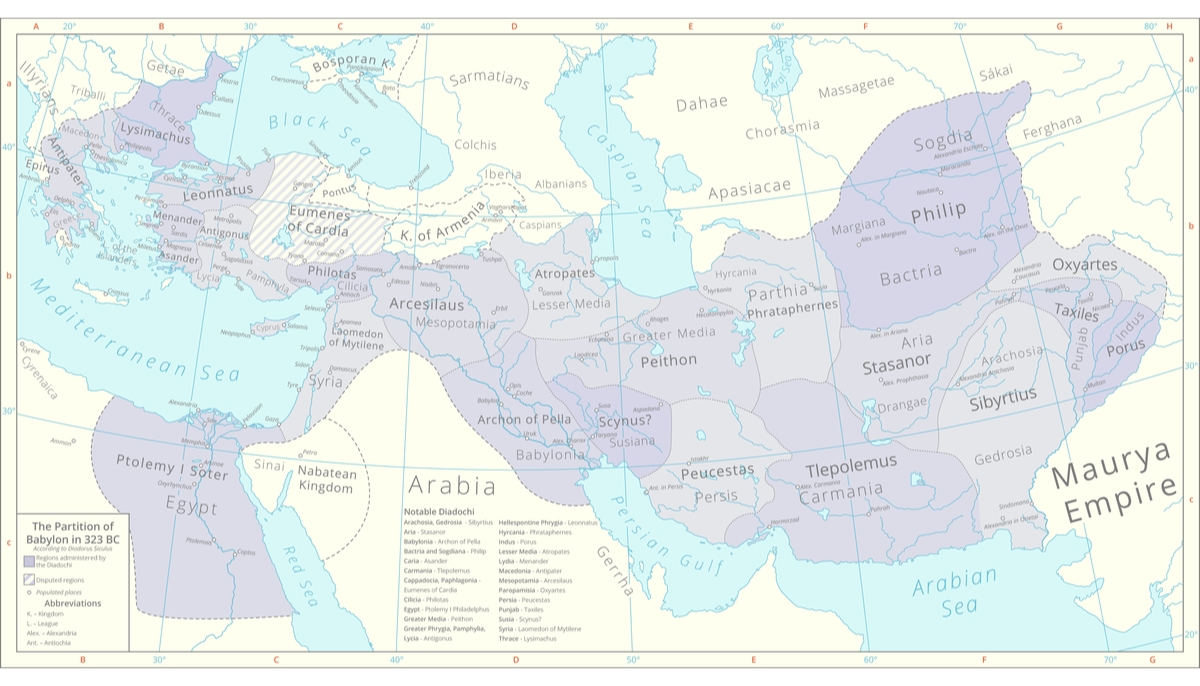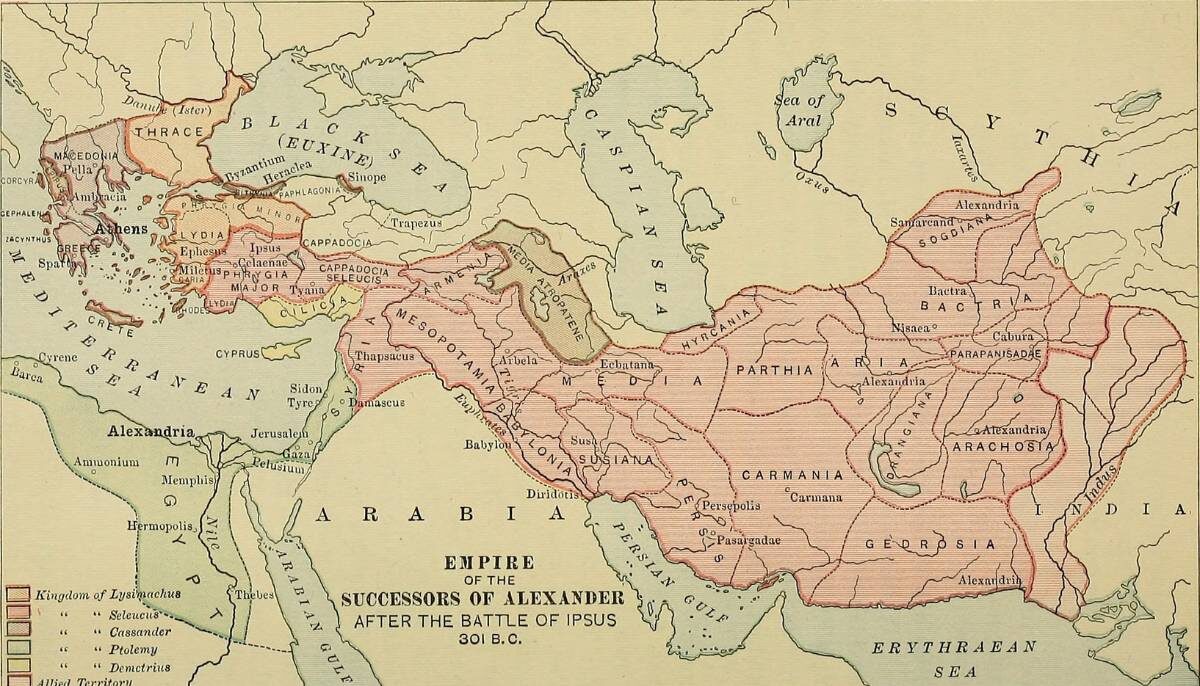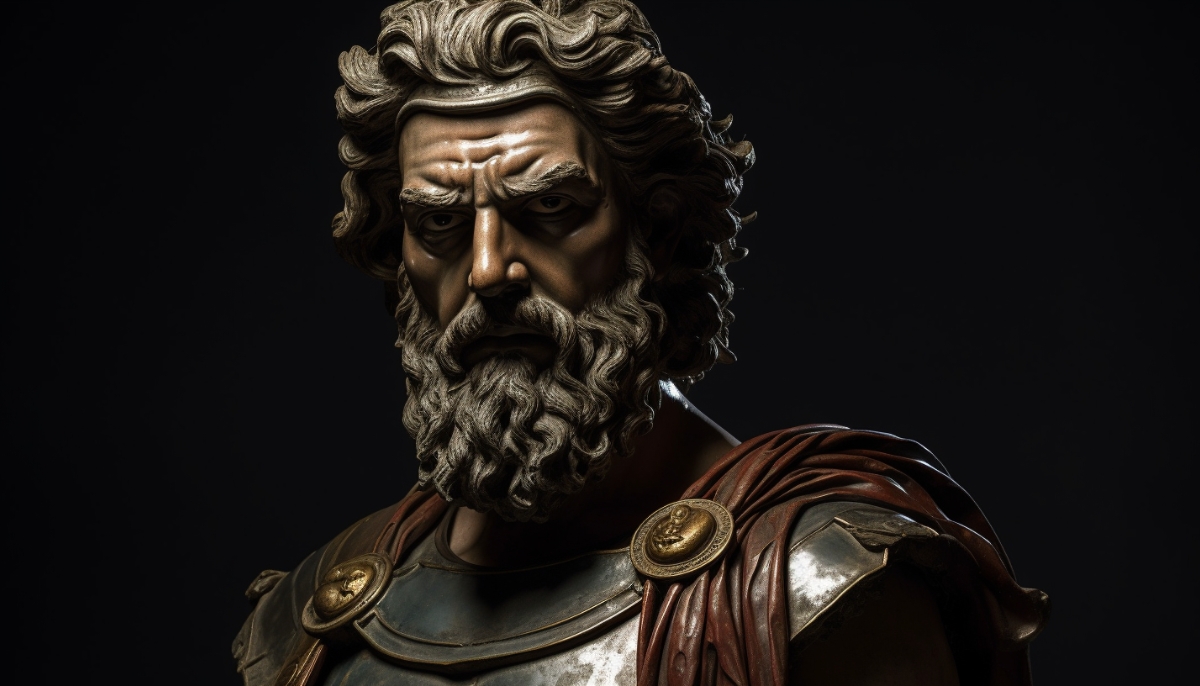Antigonus was one of Alexander the Great’s generals and critical in many campaigns. After Alexander’s death, Antigonus sought to succeed him as ruler of the empire. This led to the Wars of the Diadochi, with Antigonus fighting against other generals for control.
Despite his military prowess and cunning, Antigonus was ultimately killed in battle, leaving behind a complex legacy. This article will explore his life, career, and impact on the ancient world.
Role of Antigonus in alexander the greats military
Antigonus Monophthalmus, also known as Antigonus the one-eyed, was born in 382 BC in the ancient Greek city of Gonnoi, located in the region of Thessaly.
Not much is known about his early life, but he was likely born into a noble family and received an education in Greek classics, military tactics, and philosophy. He may have served as a soldier in the armies of Philip II of Macedon.
Born in 382 BC, he was the same age as Alexander’s father, King Philip II of Macedon. Antigonus was close friends with both Antipater, who would later become regent of the Macedonian Empire, and Eumenes, Alexander’s personal secretary.
Satrap of Phrygia

During Alexander’s conquests, Antigonus commanded the allied Greek infantry. He played a crucial role in several battles, including the Battle of Issus in 333 BC and the Siege of Tyre in 332 BC.
Antigonus was appointed as the satrap of Phrygia, one of the largest and wealthiest provinces of the empire.
Despite his crucial role in Alexander’s army, Antigonus did not travel east with the main force during the later stages of Alexander’s campaign. Instead, he was tasked with keeping order in Asia Minor and maintaining communications with the Persian Empire.
During this time, Antigonus continued to build his power base and accumulate wealth, preparing for the power struggles that would soon engulf the empire after Alexander’s death.
Antigonus, after the death of Alexander the Great
Antigonus was one of the most powerful of the Diadochi, the successors of Alexander the Great.
After the death of Alexander, he initially supported the idea of a council of aristocrats taking over the Macedonian Empire. Eventually, he became embroiled in the wars of the Diadochi, which lasted for several decades.
Antigonus and the first war of the Diadochi (321–319 BC)

After the initial power struggle, Antigonus formed an alliance with Craterus, Antipater, and Ptolemy against Perdiccas, who had appointed himself as regent of the empire.
Perdiccas had alienated many of his former allies, including Ptolemy, by attempting to force them to support his rule.
Antigonus takes control
The assassination of Perdiccas in 321 BC marked a turning point in the conflict, and Antigonus emerged as one of the most influential figures in the struggle for control of the empire.
He was named Strategos of Asia, commanding the empire’s largest and most strategically important province.
Antigonus went on to win a series of stunning victories against the former allies of Perdiccas, conquering them all except for Eumenes, who was left under siege in Nora.
Antigonus’ power grew significantly, and he was regarded as one of the most capable and effective military commanders.
Antigonus and the Second War of the Diadochi (318–316 BC)
In the Second Diadochi War, the death of Antipater left a power vacuum in Macedon, with Polyperchon in charge of the regency over Philip Arrhidaeus.
This created an unusual alliance between Antigonus, Cassander, and Ptolemy, who saw an opportunity to gain regional power. On the other hand, Eumenes joined Polyperchon’s cause, hoping to restore order to the empire.
Victory over Polyperchon
With his extensive military experience, Antigonus emerged victorious in the Second Diadochi War by defeating Polyperchon’s navy on the Bosphorus, causing him to flee to Epirus.
Execution of Alexander the Great’s family
Polyperchon formed a new but weak alliance with Alexander the Great’s mother, widow, and son.
The war would end with Cassander executing the members of the royal family that Polyperchon had allied with. This brutal move left Cassander as the only one with a legitimate claim to the throne, effectively ending the war.
Antigonus emerged from the Second Diadochi War as an influential figure, having conquered much of Asia Minor and emerging as the clear leader of the surviving Diadochi.
Antigonus and the third war of the Diadochi (315–311 BC)
After becoming the most powerful man in the Greek world following the second war of the Diadochi, Antigonus’ dominance began to worry Ptolemy, who allied with Cassander and Lysimachus.
Antigonus responded by invading Syria and laying siege to Tyre. He also allied with Polyperchon, who was still a factor in the ongoing conflicts.
Despite some initial successes, the war eventually ground to a stalemate, with neither side able to gain a decisive advantage.
However, Seleucus‘ return to his satrapy in Babylon would be a critical turning point.
Antigonus vs. Seleucus. The Babylonian War (312 BC)
The Babylonian War was pivotal in the Diadochi Wars between Antigonus and Seleucus. It began when Antigonus’ satrap of Babylon died, and Seleucus returned to the ancient city to seize control.
Antigonus’ forces from nearby satraps marched on Babylon, but Seleucus was prepared and won a decisive victory.
Ancient Guerilla warfare
First, Demetrius and later Antigonus himself attempted to defeat Seleucus, but Seleucus was now fighting a bloody guerrilla war. Eventually, Seleucus and Antigonus fought a pitched battle, and Seleucus emerged victorious, forcing Antigonus to agree to terms.
After the defeat, Antigonus moved West, leaving Seleucus free to conquer the East.
The Babylonian War marked the beginning of Seleucus’ rise to power. It would ultimately lead to the formation of the Seleucid Empire.
Antigonus and the fourth War of the Diadochi (307–301 BC)
In 312 BC, a series of territorial gains by Ptolemy, specifically Cyprus and nearby Greek islands, set the stage for another Hellenistic showdown.
The Fourth Diadochi War centered around the ambitions of Antigonus and his son, Demetrius, against Ptolemy and Cassander.
Demetrius’ Impact on the War
Demetrius, inheriting his father Antigonus‘ military skill, quickly altered the war’s dynamics. He secured a swift victory over Cassander at Athens, effectively sidelining him.
With Cassander out, Demetrius shifted his focus to Cyprus, successfully retaking the island and delivering a crushing defeat to Ptolemy’s naval forces.
Failed Assault on Egypt
Ptolemy retreated to Egypt, prompting Antigonus and Demetrius to make a final push to eliminate him. However, an unexpected storm destroyed their supply ships, offering Ptolemy a reprieve.
Changing Alliances and The Battle of Ipsus
Concerned by Antigonus‘ rising power, Lysimachus of Thrace and Seleucus of Persia joined the fray.
The theater of war pivoted towards Greece, culminating in the Battle of Ipsus in Phrygia in 301 BC. Here, Antigonus met his end. His forces were defeated, and he was killed, mainly due to Seleucus’ intervention.
The defeat and death of Antigonus shifted the balance of power among the Diadochi. The lands he once controlled were divided among the victors, effectively ensuring that Alexander’s empire would remain fragmented.
While the Fourth Diadochi War had multiple vital players, Antigonus’ ambitions and eventual downfall became a defining narrative, reshaping the Hellenistic world and the fates of his contemporaries.
Legacy of Antigonus

After his defeat and death at the Battle of Ipsus, his territories were divided among the victorious Diadochi. Cassander seized Macedonia, Lysimachus claimed Thrace and parts of Asia Minor, Ptolemy solidified his rule in Egypt, and Seleucus took over the extensive eastern regions, including Mesopotamia and Persia.
While his grandson, Antigonus II, would later concentrate on establishing the Antigonid dynasty in Macedon, Antigonus himself remained the last true aspirant for Alexander’s entire realm.
His death marked a significant turning point, after which the focus shifted. The most successful of the Diadochi, Ptolemy and Seleucus, wisely opted to consolidate their dynasties in Egypt and Persia, respectively, rather than overextend their reach.
In this way, Antigonus’ legacy serves as a watershed moment in Hellenistic history, signaling the end of ambitions for a unified empire and the beginning of an era defined by fragmented but powerful regional dynasties.
The Antigonid Dynasty of Macedon
Building on the ambitions of his grandfather, Antigonus II succeeded in founding the Antigonid dynasty. Focused on Macedon and parts of Greece, the Antigonid dynasty lasted over two centuries, gaining a reputation for military prowess and diplomatic skill.
The dynasty ended under Perseus of Macedon, who failed to thwart the Roman advance. The Battle of Pydna in 168 BC resulted in a decisive Roman victory and marked the termination of the Antigonid reign as Rome tightened its grip on the region.
Thus, Antigonus’ legacy endured through establishing a dynasty bearing his name, shaping the ancient Mediterranean’s political, cultural, and military fabric for generations.
His influence extended far beyond his lifetime, laying the groundwork for a dynasty that contributed to the Hellenistic world’s complexity and richness.






